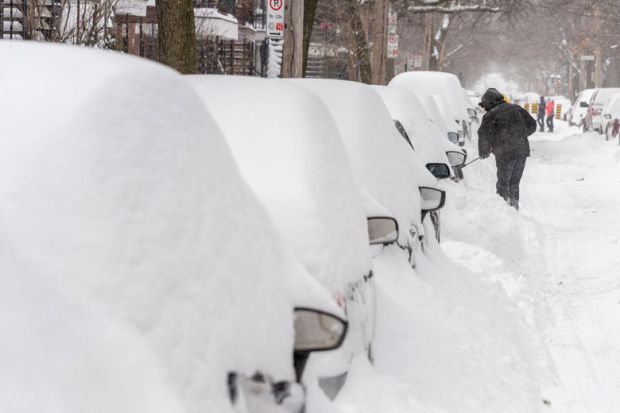The Canadian government is still struggling with student visa processing more than two years into the pandemic, leaving its universities pleading for at least some realistic timeline on a return to normality.
Federal immigration officials have nearly 170,000 pending student visa applications, and they seem unlikely to eliminate that backlog even by the coming winter semester, the Canadian Bureau for International Education (CBIE) acknowledged.
The overall problem is somewhat understandable given Covid and other circumstances, said Larissa Bezo, president and chief executive of the CBIE, which has more than 150 institutional members across Canadian higher education. Along with three years of accumulated demand from pandemic-related travel restrictions, the government also is swamped by refugees from Ukraine and elsewhere.
But students and their institutions need the government to tell them, in the very near future, what conditions they should expect for winter 2023 enrolments, Ms Bezo said.
“It’s great that they’re working on it, and we appreciate their commitment and the effort and the resources that are being dedicated to this,” she told Times Higher Education. “However, we need to know as soon as absolutely possible, realistically, how far they’re going to be able to chip away at that backlog – and well in advance.”
Canada has nearly 2.2 million students in its colleges and universities, with 620,000 of those coming from abroad – meaning that it is already nearly back to its pre-pandemic levels of international enrolment.
But the country has increasingly relied on the stability of that foreign revenue to fund its higher education system. International undergraduate students in Canada paid an average of C$33,623 (£22,245) in the 2021-22 academic year, up 5 per cent from the previous year, after a 7 per cent jump the previous year, Statistics Canada reported. That amount is more than five times the average of C$6,693 paid by domestic students in 2021-22.
Despite that high cost, Canadian higher education remains popular in the global marketplace, for reasons that include the country’s relative safety, tolerance for diversity and opportunities to stay and work after graduation.
The government’s visa processing agency, Immigration, Refugees and Citizenship Canada (IRCC), said it processed 560,000 study permit applications last year and almost 360,000 in the first six months of this year.
The IRCC is also hiring hundreds more employees and creating a more integrated processing system, an agency spokesperson said.
In the meantime, the government has been taking steps to help students and their institutions cope with the visa delays, including a just-announced change making clear that those international students who submitted a study permit application by last month can complete their work online while maintaining their eligibility for a post-graduation work permit.
The challenge facing the IRCC has been exacerbated by Russia’s invasion of Ukraine. Canada has offered Ukrainians three-year permits to study or work in the country, and more than 500,000 have applied for them, Ms Bezo said. “No one could have foreseen” that level of demand, she said.
At the same time, Canada is still struggling to account for a persistent problem involving the IRCC’s handling of student applicants from Africa, who face average visa rejection rates of about 70 per cent, roughly twice the level of those from elsewhere in the world.
Common reasons for refusal, the IRCC spokesperson said, include applicants lacking sufficient financial support, submitting fraudulent documents, or appearing unlikely to respect visa expiration dates.
But some type of bias is also likely involved, and both the IRCC leadership and members of Parliament have been investigating, Ms Bezo said.
Register to continue
Why register?
- Registration is free and only takes a moment
- Once registered, you can read 3 articles a month
- Sign up for our newsletter
Subscribe
Or subscribe for unlimited access to:
- Unlimited access to news, views, insights & reviews
- Digital editions
- Digital access to THE’s university and college rankings analysis
Already registered or a current subscriber? Login








